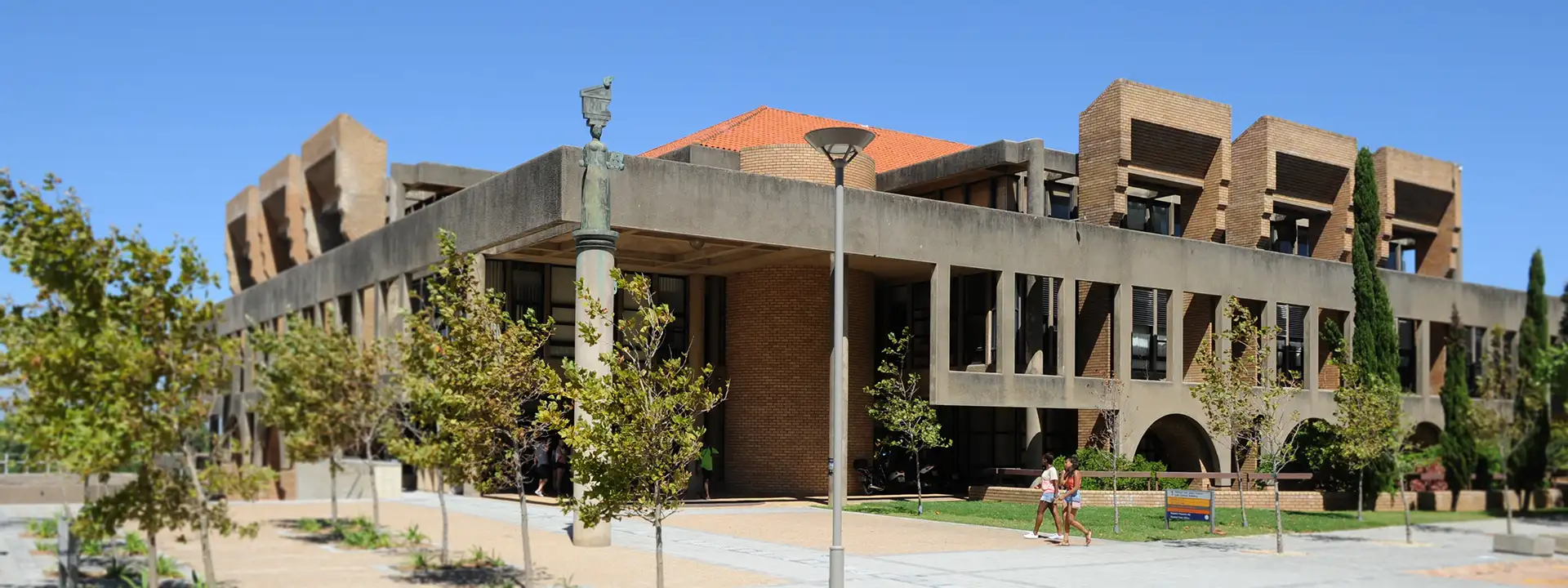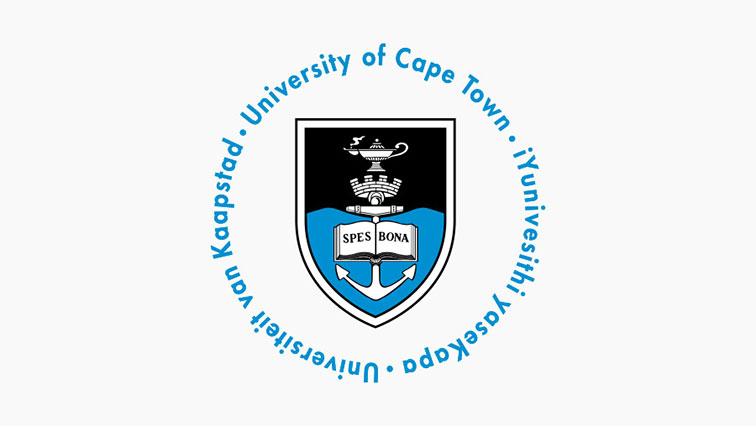
Bursary & Loan Opportunities
For students demonstrating significant financial need and a willingness to learn.
The National Student Financial Aid Scheme
Government-funded support for students in financial need and the missing middle. (NSFAS)
UCT Scholarships
Recognises and rewards students demonstrating excellence for outstanding performance.
UCT GAP Funding
Assists students declined by NSFAS for not meeting the 70/30 criteria; 70% funding for STEM and 30% for Social Sciences.
About Student Financial Aid
Guiding Your Path to Financial Support for Academic Success
DSA Student Financial Aid at UCT is dedicated to guiding students through the often complex process of securing financial support. Navigating financial aid can be tough. We simplify it so you can focus on applying. We're here to make higher education within reach.
Empowering Informed Decisions
Support Throughout the Application Process
Expert Guidance on Financial Options
Quick Links
| How to Apply for NSFA | Frequently Asked Questions |
| Postgraduate Funding Policy | Undergraduate Funding Policy |
| Sibling Rebate Bursary Application |


Applying for Funding
Comprehensive Financial Aid Overview
This section provides an in-depth guide to the financial aid options available at UCT, including eligibility criteria, priority placement, and the application process. Whether you're a first-time applicant or renewing your funding, this overview covers all the key steps and programmes designed to support students in need of financial assistance.
NSFAS & UCT Financial Assistance
Since August 2016, the National Student Financial Aid Scheme (NSFAS) has managed both new applications and renewal requests through its centralised student-centred model. While students may apply to multiple institutions for admission, only one financial aid application is needed through NSFAS.
In 2017, the NSFAS financial eligibility criteria were updated, raising the income cut-off to R350,000 per annum for new entrants, with a higher limit of R600,000 for applicants with disabilities. From 2018, NSFAS funding shifted from a loan to a grant.
All students requiring financial aid should apply to NSFAS via its online system. Additionally, NSFAS offers a Missing Middle Loan Funding Programme for students whose family income is between R350,001 and R600,000 annually. 70% of this funding is allocated to STEM programmes, with the remaining 30% for Humanities and non-STEM fields.
UCT also provides supplementary funding through GAP funding and the Sibling Rebate Bursary for students not qualifying for NSFAS. Should a student's NSFAS application be unsuccessful, they may apply for GAP funding through the UCT Financial Aid Office.
First-Time Applicants
Prospective first-year students should apply to NSFAS directly. Applications typically open in September and close before the university admission process is complete. Ensure you start early to gather the necessary documentation and submit your application on time.
Important: Do not wait for your academic admission results to apply for NSFAS, as the application period may close before admissions decisions are finalised.
Registered Students Already Funded by NSFAS
Your academic eligibility will be reviewed each year to determine whether you qualify for renewal. NSFAS also reserves the right to re-evaluate students continued financial eligibility. The MyNSFAS portal will provide your funding status updates.
Registered Students Applying for NSFAS for the First Time
If you are a current student not yet funded by NSFAS but foresee financial challenges, you can apply for NSFAS during the same application period as new students. Be sure to submit your application before the closing date.
Students must meet specific academic and financial criteria to remain eligible for NSFAS or UCT funding.
Academic Eligibility for Renewal
Your academic performance will be reviewed annually to determine whether you meet the renewal criteria for continued funding. If you fall short of the requirements, your funding may be discontinued.
For Students on a Gap Year
If you take a gap year, you must reapply to NSFAS during the normal application period. Appeals for funding after a gap year will not be considered.
Basic Eligibility Criteria
- Must be a South African citizen or permanent resident.
- Must be enrolled in an NSFAS-funded programme (Undergraduate only for the DHET Bursary).
- Advanced Diplomas, Postgraduate diplomas and the PGCE are not funded by NSFAS, however the Missing Middle Loan Funding Programme will consider postgraduate programmes from NQF level 8 for funding within the NSFAS’ criteria. Please check the NSFAS website for further details.
NSFAS funding follows the N+1 rule, which means students are funded for the minimum duration of their programme plus one additional year. This rule also applies when transferring between institutions.
Students transferring to UCT must ensure they have enough funding years left to complete their degree at UCT. If you lose funding because you exceed this limit, no appeal will be considered.
All prior years of study at any tertiary institution are counted towards the N+1 rule, regardless of how those years were funded.
Late Applications
Late applications will not be considered, and it is crucial to apply before the deadline. NSFAS does not fund late applications made in the TVET window.
Visit the NSFAS website and register on the MyNSFAS portal to complete your application. Upon submission, you will receive an application reference number, which confirms your submission. If no reference number is received, your application has not been successfully submitted.
NSFAS Contact Details
If you require assistance, contact NSFAS via:
- Toll-free: 0860 0067 327
- Email: info@nsfas.org.za
Keep a record of your application and supporting documents, and regularly check your email for updates from NSFAS or UCT. Remember, your application is not complete until you receive a reference number.

The Bursary and Loans Noticeboard provides information on funders that advertise either bursary or loan opportunities for students. Each funder has specific criteria that applicants need to comply with to be considered. It is important to read the criteria and obligations carefully when applying.

National Student Financial Aid Scheme (NSFAS)
A South African government student support programme designed to provide financial assistance to students from low-income households. It aims to help cover the costs of tuition, accommodation, books, and living expenses, ensuring that financial barriers do not limit access
NSFAS funding is a grant that does not require repayment and also includes additional allowances for personal care, travel, and meals, depending on the specific needs of the student. The programme is critical in promoting higher education inclusivity and accessibility, making it an essential pillar of support.
Sibling Rebate
The Sibling Rebate at UCT is a thoughtful initiative designed to alleviate the financial burden on families with multiple children enrolled in full-time undergraduate programmes at the University of Cape Town.
This rebate offers a 20% reduction in tuition fees for students from families with a combined annual household income of R600 000 to R750 000. For families with two or more undergraduate siblings at UCT, who do not qualify for NSFAS or GAP funding.


Scholarships
Scholarships at UCT are designed to recognise and reward students who have demonstrated excellence and aims to motivate high achievers by covering part or all their tuition fees and, in some cases, providing additional allowances for living expenses and books.
By supporting outstanding students, scholarships contribute to a culture of excellence and achievement within the university community.
UCT Gap Funding
GAP Funding at UCT provides targeted support to students who experience a financial shortfall and do not qualify for NSFAS.
This funding, which includes both a bursary and loan component, helps cover remaining tuition fees and living expenses, ensuring students can continue their studies without financial disruption.

Student Financial Aid FAQs
Answers to common questions about UCT Financial Aid eligibility, applications, and more.
A considerable number of students fund their studies through a combination of scholarships, bursaries (either administered by the University or by organisations outside the University), loans, help from parents, sponsorship by companies, and through part-time and vacation work.
As of 1 August 2016, the National Student Financial Aid Scheme (NSFAS) opened its student-centered application model. First-time applications for financial aid, as well as funding renewal for those students who are already recipients of NSFAS funding, will be handled centrally via NSFAS. The NSFAS applications cycle is normally opens in October. Please check the NSFAS website for the application cycle opening and closing dates.
UCT will inform all applicants (that apply for a NSFAS funded programme) by email when the NSFAS application cycle opens.
It is funding for siblings who are studying undergraduate programmes at UCT and are not eligible for NSFAS or UCT GAP funding. Application forms are available after registration on the undergraduate financial aid web pages.
The following requirements must be met:
- The siblings must be South African citizens or have South African permanent residency
- The sibling of an undergraduate student at UCT must simultaneously be studying towards a full-time undergraduate degree
- The total gross family income must be between R600 000 and R750 000 pa
- The siblings must not be in receipt of financial assistance, sponsorship or the UCT Staff Tuition rate
Successful applicants will receive a bursary equivalent to 20% of their tuition fees for the second sibling only.
The NSFAS funding makes provision for the cost of tuition, a set book allowance, a home allowance for those living at home and an accommodation allowance of R50 000 for students living in residence or private accommodation, and a meal allowance for those in self-catering residence or private accommodation.
Students are encouraged to apply other sponsors for funding to help meet any residence accommodation cost shortfall.
University residence is the first choice of accommodation for NSFAS funded students. Students that wish to stay in private accommodation must ensure that the accommodation is accredited by UCT or NSFAS.
Private accommodation that is not accredited will not be paid for.
The University uses a course-based fee structure. Tuition fees vary per academic programme. View the Fees web pages to find out more about the full costs of study at UCT.
For a pro forma invoice of the estimate tuition fees and associated costs log into the Student Self-Service system and click on Self Service Proforma. Please ensure that you have a copy of your applicant ID (known as your Campus ID) to access the self-service pro forma page.
You can now generate a pro forma invoice via online service. Log into the Student Self-Service system and click on Self Service Proforma to get such an invoice. Please ensure that you have a copy of your applicant ID (known as your Campus ID) to access the self-service pro forma page.
If you are experiencing any problems, please contact the Fees Office at fnd-feeenq@uct.ac.za.
Deposits may be made into the university's bank account.
The university's banking details are:
Standard Bank Rondebosch
Branch code: 025009
Account number: 270689982
Swift address: SBZAZAJJ
Your name and student number must be quoted when using this method of payment.
Credit card payments can be made online, directly to the student fee account.
Normally NSFAS finalises funding decisions at the same time the NSC results are released. Check the NSFAS website and their social media accounts for updates.
Useful Resources
Access essential forms and documents which may help with your financial aid process.

Relative Confirmation Form: Accommodation
This form confirms accommodation details for Student Financial Aid purposes.

Curriculum Advisor Form for Appeal & Support
Allows your curriculum advisor to provide necessary information for financial aid appeals.

Careers Services: Bursary Opportunities
Explore available bursaries and scholarships through UCT Careers Services.
Frameworks & Protocols
Key Student Policies and Guidelines
Explore essential student policies and guidelines covering funding, mental health, housing, and governance.





